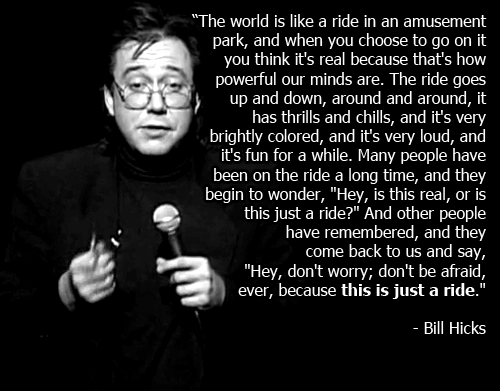How do we figure out what we'll do five years from now?
This is probably the question I hate most during job interviews, and of late it's a question I'm asking myself a lot as well.
I found a Google talk by a guy Dick Bolles who's apparently written one of the most famous guides for job-seekers - 'What colour (color?) is your parachute.' - and here he's talking about how to think about five years into your future. I watched it and then re-watched it just now because I wanted to take notes and I'm putting them up in the hopes that it helps someone else out as well.
Generally people have one of three strategies for thinking about 5 years into their future:
I found a Google talk by a guy Dick Bolles who's apparently written one of the most famous guides for job-seekers - 'What colour (color?) is your parachute.' - and here he's talking about how to think about five years into your future. I watched it and then re-watched it just now because I wanted to take notes and I'm putting them up in the hopes that it helps someone else out as well.
Generally people have one of three strategies for thinking about 5 years into their future:
- They ignore it
- They rely on their Luck.
- "I'll see where I'm at in five years and see what's happening."
- Effectively, they hope to see the next big wave and then jump on it as it happens.
- "I'll know it when I see it"
- They rely on their Intuition and on being watchful.
- This is about pattern matching and noticing what's happening.
- They decide to try some forethought.
- That's fine if you're "designing" but "planning" doesn't work.
- You cannot plan for five years from now.
- War, natural disasters or new technologies could completely upset your calculations.
- You can design for the future though; Like planning for a camping trip, you take things you "might" need.
- Design is gathering together whatever you might need to deal with the future scenarios.
Luck
- Whether this strategy works depends on Intersections; the more people you run into, the more likely you'll have "luck"
- Maximize your intersections.
- Pay attention to meetings, getting on social media, and meetups with people in real life.
- For job seekers, get on Linkedin.com, jobswithfriends.com (check for companies where friends of yours work).
- Note: Basically it becomes a kind of numbers game.
Intuition
- Intuition depends on what you notice and generally you notice things in relation to some kind of benchmark.
- Then it becomes important to properly set your benchmark so that you're then more sensitive to deviations.
- Think of what kinda jobs you like best:
- data
- people
- things (computers and whatever)
- So once you decide that, you can spend the next 5 years focusing on jobs related to that specific field.
- That way when something truly cool turns up, it'll be a significant deviation from the norm and you'll notice it.
- This is just one way to prime the brain to notice things, check out the video below.
Lifestyle Design
- Do an inventory of yourself.
- You're constantly put in boxes by situations and other people: "I'm a coder", "I'm in HR", etc and then you live in that box.
- If you want to learn, you must first unlearn. And the biggest thing to unlearn is the limiting picture we have of ourselves.
- The inventory should not be "I'm this" or "I'm that".
- Instead it can be "I am a person..." and then "I am a person who..."
- Again, you're gathering a set of things you think might be useful in five years...
- When you go camping, the most important thing is a tent.
- For job seeking, or fulfilment, the most important thing to do is rethink who you are.
- What you do flows from who you are!
- (Detailed inventory thing is in his book... some "crass commercialism" here. :p)
- The inventory should be a set of stories about yourself. Those stories should then boil down into a set of skills.
- Focus on skills because the more atomic you get in your understanding of yourself, the more flexibility you have.
- If you're good at teaching, researching and writing then you could be any number of things like a speaker, a scientist, anything.
- Think about how you like to use your brain, and what skills you have.
- Nevermind what the marketplace wants initially, you can persuade someone to pay you for your skills later.
- It's enthusiasm that's the real secret ingredient.










